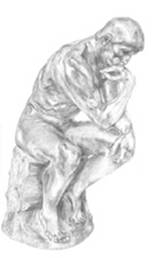
PHILOSOPHY
The basic goal of the philosophy course is that students attain knowledge about the key philosophical problems through introduction of the main contents and historical development of philosophical thinking. Also, students become familiar with philosophy through the possible consideration of the position of philosophy as a carrier of the probable interdisciplinarity. It enables students to become familiar with other spiritual fields like literature, history, religion, politics, art, music, morals, etc. Curriculum includes the history of philosophy that follows the development of philosophical ideas through the history as well as the relation towards cultural and historical circumstances in which they occur. Through the history of philosophy the following philosophical epochs were being studied: the classical epoch (from the 6th century BC until the 6th century AD), medieval (from the 6th until the 15th century), modern (from the 15th until the 19th century) and contemporary philosophy (from the 19th century until now). Besides the history of philosophy, students study other philosophical disciplines as well (ontology, metaphysics, epistemology, logic, ethics, aesthetics, axiology, political philosophy). The approach to the history of philosophy with other philosophical disciplines is various: from scientific, doxographic, cultural, ideological to psychological and problematical approach. Students are required:
- to understand and discuss philosophical problems and their solutions
- to develop critical attitude and independent opinion (to choose freely and responsibly in every sense, but aware of ethic implications) – analytic and synthetic opinion
- to prepare themselves for comprehension, not only philosophical, but other theoretical and practical problems
- to have insight into general theoretical and humanistic streams of thinking which shape certain historical epochs and represent the basis for contemporary humanistic and critics orientations
- to develop communication skills that are necessary for cooperative behavior and team work: argumentative presentation of personal opinion
- to understand nature and manner for establishment of social, ethic and legal norms, rules and their importance for common life
- to develop flexibility, that is, the possibility to adapt themselves on the environmental change
- to solve the conflicts in a constructive manner, to accept different opinions

























